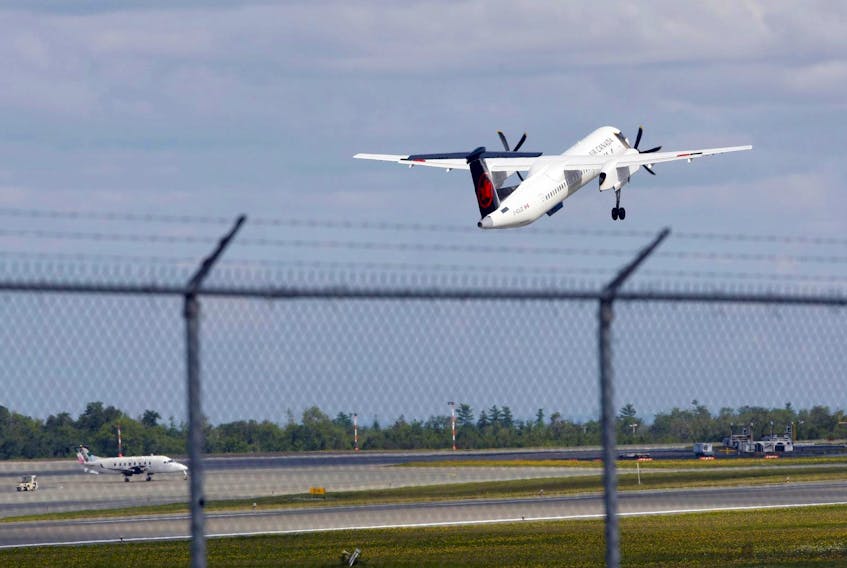Summer travellers take note: A flight bump or lost suitcase could mean airline compensation to the tune of $2,000 or more.
They are part of a suite of new rights that will protect Canadians — or anyone — flying to, from or within the country.
The first wave of chages to the Canadian Transportation Agency’s Air Passenger Protection Regulations, the product of three months of cross-country meetings and public consultations with travellers, industry, and experts, came into effect Monday.
The new rules mean airlines must provide compensation of up to $2,400 if they bump a passenger for reasons within their control (such as overbooking by the airline, changes in plane for commercial reasons or scheduled maintenance), as well as compensation for lost or damaged baggage of up to $2,100 and a refund of any baggage fees.
Additionally, airlines must communicate to passengers clearly their rights, as well as provide regular updates in the event of flight delays and cancellations.
There are also new standards that apply to all tarmac delays: passengers will now be allowed to leave the airplane, when it’s safe to do so, if a tarmac delay lasts for over three hours and there is no prospect of an imminent takeoff.
A second wave of changes, which include things like how much an airline must pay a traveller if their flight is delayed, as well as obligations towards passengers during flight disruptions and when seating children, come into effect Dec. 15.
“This is an important day for the millions of Canadians who take flights to see family and friends, visit new places, do business, or seek medical treatment,” Scott Streiner, chairman and CEO of the transportation agency, said in a news release.
“The Air Passenger Protection Regulations establish clear, fair, balanced obligations that will help ensure fair treatment when people travel by air — whether they’re flying from, to or within this vast country.”
Not everyone is pleased with the new regulations, however.
Airlines, for starters, are against the new rules, and are challenging them in court. Air Canada, Porter, British Airways, Delta, United, Lufthansa, the 290 member airlines of the International Air Transport Association and others filed an application for judicial review in Federal Court last month, claiming that the new rules violate international standards.
Halifax-based passenger rights advocate and expert Gabor Lukacs, who is also challenging the new rules in court, said Canadians are in for a rude awakening.
On his website airpassengerrights.ca, Lukacs said passengers will only get compensation if they have evidence that at the boarding gate, there were more passengers than the number of seats available on the aircraft and that all this happened for reasons within the airline’s control and not due to maintenance issues.
“Good luck!” Lukacs wrote.
He also pointed out that the monetary limit of approximately $2,100 for lost baggage compensation has been in place since 2009.
And in some areas, Lukacs says, passengers have less protection.
“Before the new rules came into force, the federal regulator recognized the principle that airlines should not be able to avoid paying denied boarding compensation by tricking passengers,” he said. “For example, if you present yourself for check-in on time but find the airline’s counters closed or if the airline unilaterally changes your ticket, you are still eligible to compensation. Under the new rules, however, passengers caught in such situations are left without protection.”
The new regulations also increase the amount of time passengers can be kept on the tarmac, Lukacs says.
Under the 2008 Code of Conduct of Canada’s Airlines, the airline could keep you in an aircraft on the tarmac for up to only 90 minutes before letting you disembark.
“Under the new rules, airlines can keep you on the tarmac for up to 225 minutes,” Lukacs said. “This is more than double the 90-minute limit that was also endorsed by the Senate.”
Flight Claim Canada, a traveller advocacy group, issued a release calling the new regulations clear gains but expressed concern about remaining uncertainty.
For example, Flight Claim said despite the transportation agency’s best efforts, it will not be able to clearly and fairly determine exactly what constitutes a situation “within the carrier's control” as it relates to bumped flights. It also said gaps in the legislation will be used by airlines to their advantage at the detriment of air passengers.
Meanwhile, the Canadian Automobile Association is encouraging passengers to get familiar with the new rules to ensure they are treated fairly.
“The proposed regulations will, in most cases, require travellers to file a claim with an airline to receive compensation,” said Gary Howard, vice-president of communications at CAA Atlantic. “We encourage passengers to file a claim to ensure they receive what the new regime says they are owed.”
To help with the transition, the transportation agency has launched a one-stop-shopping online service for air passengers to learn about their new rights, file a travel complaint and find tips for hassle-free travel. The website can be found at airpassengerprotection.ca.









